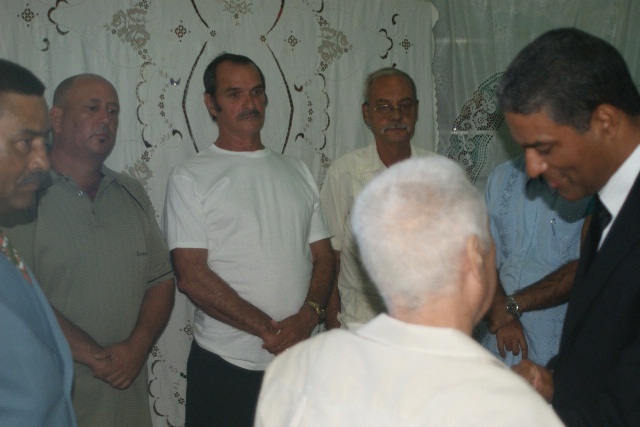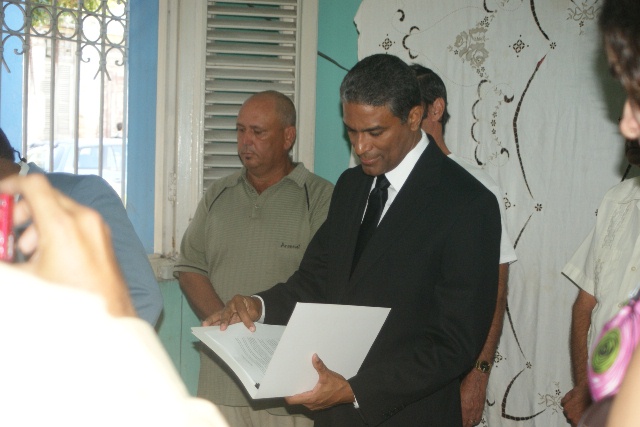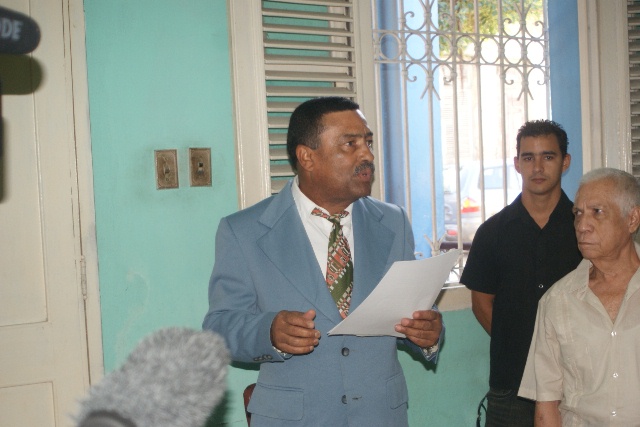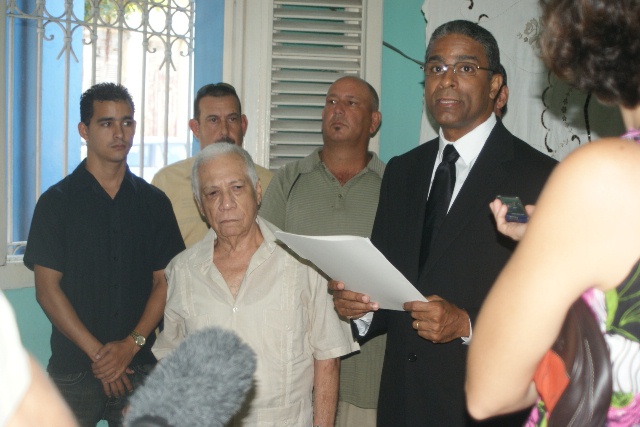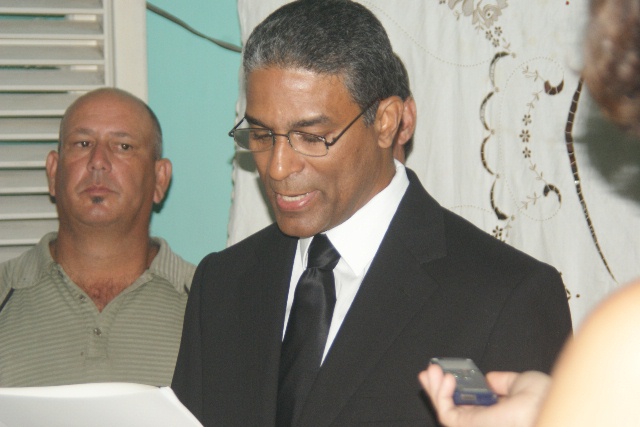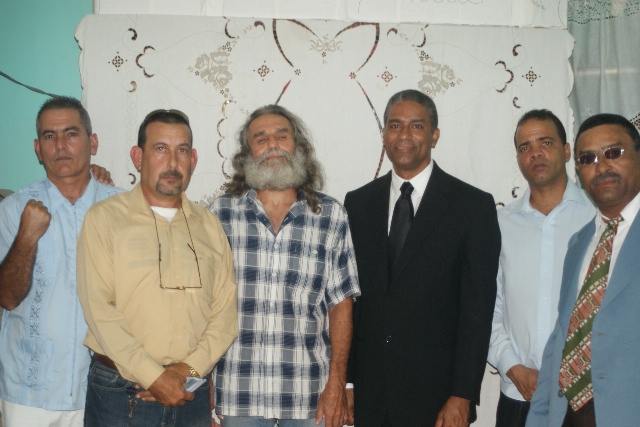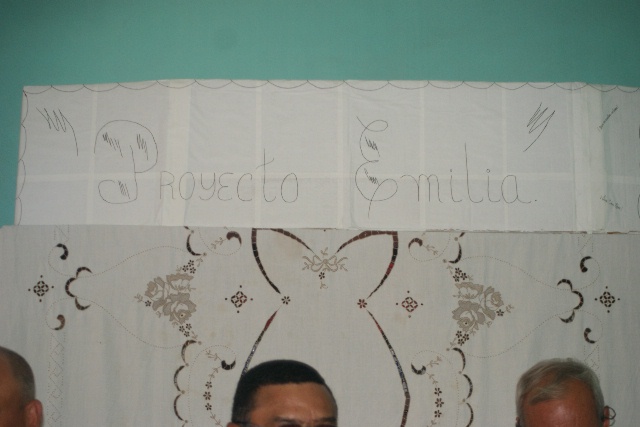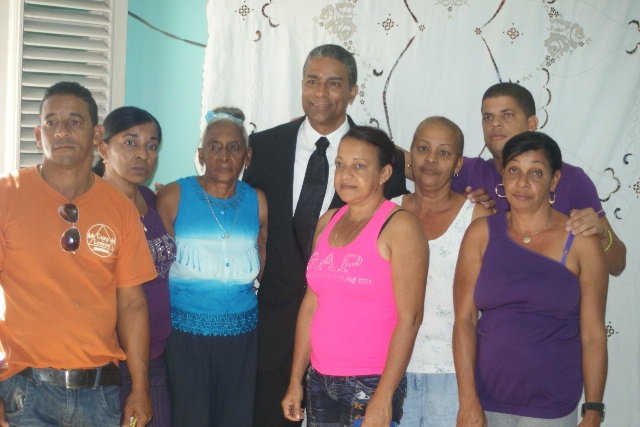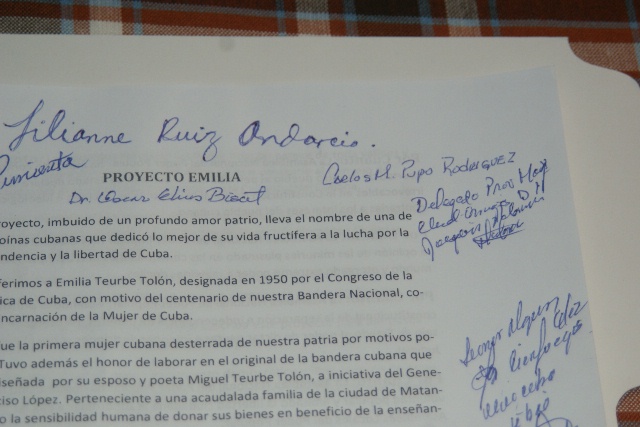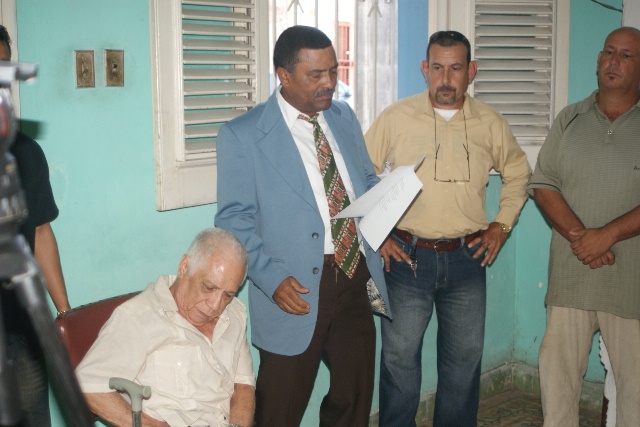This Wednesday, January 9, a new project comes to light from one of the organizations that dare to claim rights and freedoms under the most strict censorship of the state, repression and prison. Dr. Oscar Elias Biscet convicted in case 63 of 1999, in the case 662 of 1999 and finally in case 15, 2003, tried and convicted in Case 16 of 2003 to 25 years in prison, a part of the group of 75 and the fatal and infamous Cuban Black Spring.
President of the Club of Friends of Human Rights, he proposes a legitimate government is based on constitutional grounds and on respect and unconditional exercise of the 30 articles enshrined in the Universal Declaration of Human Rights, of which Cuba as a State is a signatory.
As most of the projects launched by and for freedom and civil rights are considered constitutionally illegal and the State reserves the right without rights to judge them as punishable offenses. That is why each time they do not cease to monitor and guard by well-armed police well supported in the media and agents prepared for espionage and prepared to use force with impunity as the government desires. This case is no exception.
It’s about 10 in the morning as the sun burns outside as if it were August, the foreign press accredited in Cuba arrives and, as usual after the rise to power of Fidel Castro by force of arms in 1959, foreigners will receive information about the events that occur within the island, which will then echo back through a small part of the people in the society interested in receiving the information, the rest might die ignorant, which is a characteristic of totalitarian regimes to maintain power.
The activist who serves as moderator starts the event, and offers an introduction. Some journalists who have been left behind accidentally or deliberately arrive in those moments, I don’t know them and my camera has stopped working to cover as a journalist authorized by the host to take their pictures.
From the ethics of courtesy I give up my space in the small room but they did not accept it and stayed near the door. Dr. Biscet begins the reading of the document entitled Project Emilia, and as he finished he gives way to the moderator’s questions. After the conference while Twittering the journalist identified with the F agency and her companion called me aside, with the peasant’s innate ingenuity they approached me and I offered my hand, my imagination ran on Christian transparency and fraternity, but what was not a surprise was to find myself questioned about my identity and presence.
An agent of the State Security could not have done a better job with that work. As I have said before anyone asked me my identity, and even written in my blog, I said I do journalism but I have no title, nor belong to any agency, I publish on my blog. The problem is that we’ve taken photos of ourselves and of the journalists and they don’t want to appear is association with the event. I do not let them finish the sentence and first for decency, and then ignoring the ethical rules of journalism, I felt embarrassed and try to give them my camera with great ingenuity to erase the unwanted photos, did not take it and I opened the small visual display to let them make the selection at will.
Lili, my wife who was with me, objected to the humiliating demand with which the reporter flaunted his journalistic profession to teach me. Everything was there, later I realized that these correspondents had also violated my right to freedom, none of the photos had been made with any evil intention that they noted, much less were they alone in them.
With regards to the submissiveness and subservience to the interests of the State of the accredited press corps in Cuba have made several critical assessments. Fear, I think, sometimes, of being expelled and losing the privileges coupled with substantial governmental perks added to the life of kings or princes which the job allows them to enjoy, most shun being present at and covering events where Cubans decide to protest and engage in civil disobedience.
This is one of the reasons for the emergence of more accurate and credible citizen journalism which reports from when and why things happen. More than a journalism of news it has become a journalism of justice for the people inside and below.
The two previous reasons, fear and ambition could occasion a demand from the journalist representing the F agency whose name I’m not sure was was Andrea Rodriguez and the young man who accompanied her, have demanded that I remove the pictures where they dimly appear.
If we meet at another public event which is very probable I beg them to come wearing a hood or to stay away from my lens so that I won’t have to voluntarily erase one more photo from my camera with which I delineate part of the current history of Cuba, for which I face the risk of repression or prison, a story I don’t think interests them very much since they don’t get paid for it.
As I never grossly manipulated a photo contrary to justice or to treacherously denigrate the honor or dignity of a human being, attributing to the image some motive of mockery or slander, I take advantage of the occasion to recommend that at a public event any citizen who falls under the shutter of my equipment, without regards to the social strata he belongs to or the job he holds within the government, will only through a compassionate act or violent force get me to give up my images.
The audio of the press conference will be posted soon, due to technical problems it could not be posted now.
11 January 2013

